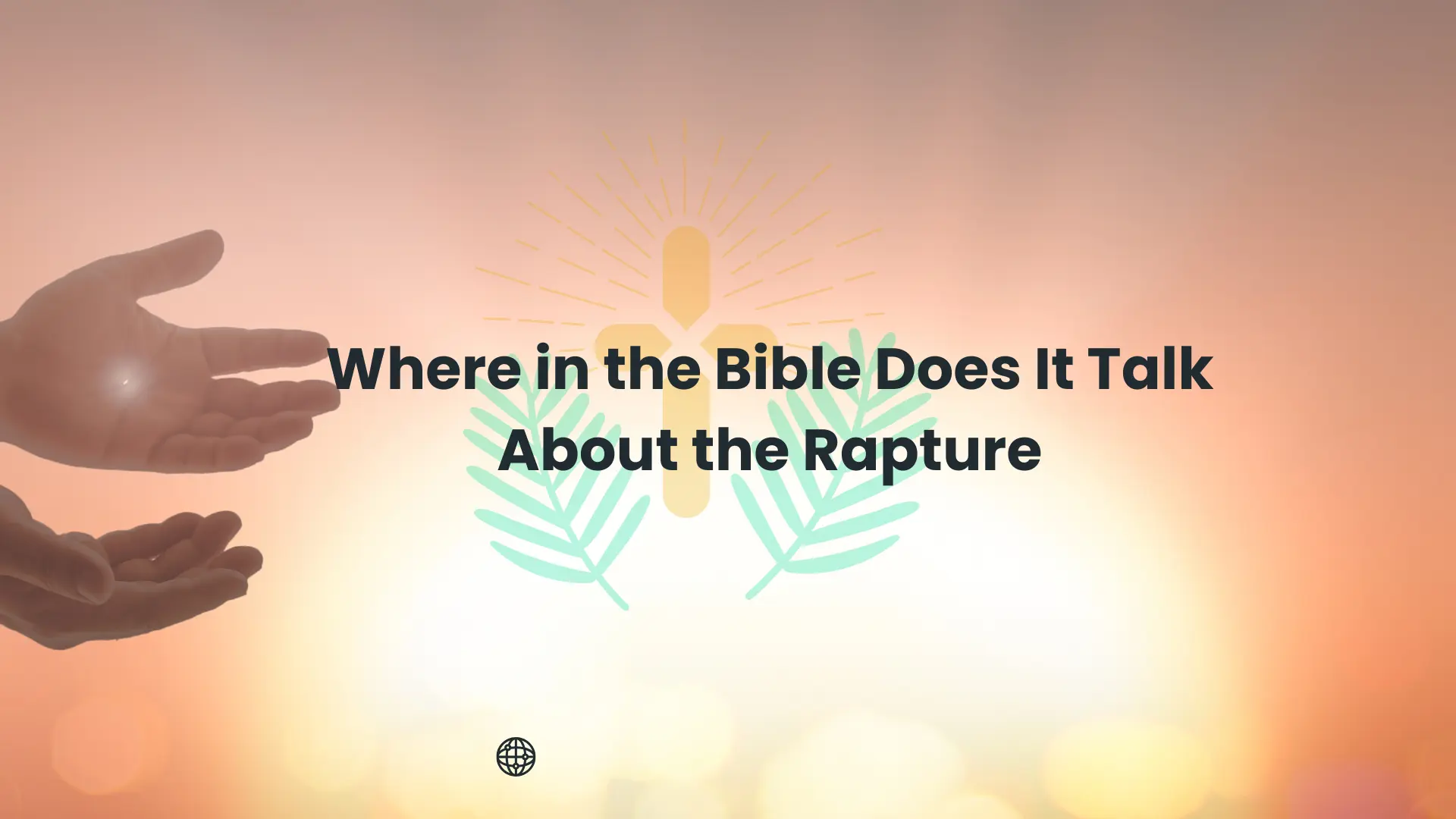Where in the Bible Does It Talk About the Rapture

The concept of the Rapture is one of the most intriguing and debated topics in Christian eschatology. Many believers anticipate a future event where the faithful will be taken up to meet Jesus Christ. But what does the Bible actually say about this event? This article explores the key biblical passages about the Rapture, different interpretations, and what it means for Christians today.
What Is the Rapture?
Definition and Origin
The term “Rapture” is derived from the Latin word rapturo, which translates from the Greek word harpazo, meaning “to snatch away” or “to seize suddenly.” Although the word “Rapture” does not appear in most English Bible translations, the concept is found in several passages that describe believers being caught up to meet Christ.
Theological Significance
The Rapture is a crucial part of Christian eschatology, shaping how different denominations view the end times. Some see it as an event that provides hope and comfort, signifying God’s promise to rescue believers from tribulation, while others see it as part of a broader divine plan leading to Christ’s return.
Key Bible Verses Describing the Rapture
1 Thessalonians 4:16-17
This passage is often considered the clearest biblical reference to the Rapture:
“For the Lord himself will come down from heaven, with a loud command, with the voice of the archangel and with the trumpet call of God, and the dead in Christ will rise first. After that, we who are still alive and are left will be caught up together with them in the clouds to meet the Lord in the air. And so we will be with the Lord forever.”
This verse describes a moment when believers, both living and deceased, will be gathered to Christ.
1 Corinthians 15:51-52
Paul describes a mystery in which believers will be transformed instantly:
“Listen, I tell you a mystery: We will not all sleep, but we will all be changed— in a flash, in the twinkling of an eye, at the last trumpet. For the trumpet will sound, the dead will be raised imperishable, and we will be changed.”
This passage emphasizes the sudden nature of the Rapture and the transformation of believers into their glorified bodies.
John 14:1-3
Jesus comforts His disciples with these words:
“Do not let your hearts be troubled. You believe in God; believe also in me. My Father’s house has many rooms; if that were not so, would I have told you that I am going there to prepare a place for you? And if I go and prepare a place for you, I will come back and take you to be with me so that you also may be where I am.”
Many interpret this as a reference to the Rapture, where Jesus promises to return for His followers.
Interpretations of Rapture Passages
Pre-Tribulation View
This perspective holds that the Rapture will occur before a seven-year period of tribulation. It suggests that believers will be taken up to heaven before the outpouring of God’s wrath upon the earth.
Mid-Tribulation View
According to this belief, the Rapture will take place in the middle of the tribulation, around the three-and-a-half-year mark. Proponents argue that believers will endure the first half of tribulation but will be taken up before God’s final judgments.
Post-Tribulation View
This view maintains that the Rapture occurs at the end of the tribulation period. It suggests that believers will go through the tribulation but will be gathered to Christ upon His return.
Signs and Timing of the Rapture
Biblical Indicators
Many passages describe signs that some interpret as precursors to the Rapture, including:
- Increased wars and conflicts
- Natural disasters like earthquakes and famines
- A rise in immorality and lawlessness
- Deception and false teachings spreading among believers
Unknown Timing
Despite speculation, the Bible clearly states that no one knows the exact timing of the Rapture:
“But about that day or hour no one knows, not even the angels in heaven, nor the Son, but only the Father.” (Matthew 24:36)
This encourages believers to stay spiritually prepared rather than focus on date-setting.
Living in Anticipation of the Rapture
Spiritual Preparedness
Christians are encouraged to live holy and faithful lives, being watchful for Christ’s return. This means staying rooted in prayer, scripture, and good works.
Encouragement and Hope
The promise of the Rapture brings comfort to many believers, reminding them of God’s faithfulness and the eternal hope found in Christ.
Common Questions About the Rapture
Is the Word “Rapture” in the Bible?
While the English word “Rapture” is not found in most translations, the concept comes from the Greek harpazo, meaning “caught up,” as seen in 1 Thessalonians 4:17.
How Should We Interpret Rapture Passages?
Understanding these passages requires looking at historical context, cross-referencing scripture, and considering different theological perspectives.
Conclusion
The Rapture remains a key topic in Christian theology, with varying interpretations and significant implications for believers. While the exact timing and nature of the event are debated, the central message remains clear: Christians are called to live in readiness, trusting in God’s plan and the hope of Christ’s return.
By studying scripture, remaining faithful, and preparing spiritually, believers can find comfort and assurance in the promise of the Rapture.





